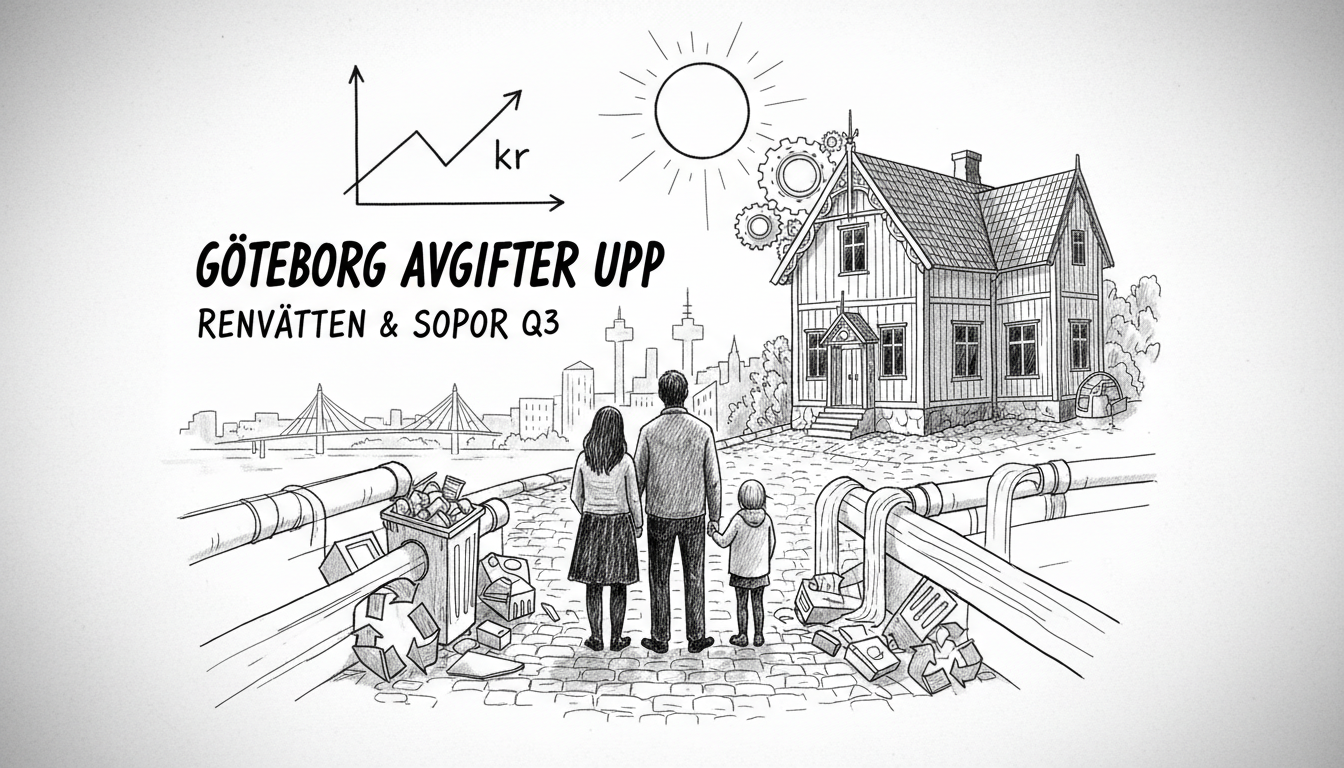Gothenburg residents face higher costs for waste disposal and water services. The city confirms a twelve percent increase in waste management fees. This change adds approximately one hundred Swedish kronor monthly for homeowners. Water and sewage taxes will also rise gradually. Emma Hansryd, management director for Recycling and Water, explained the need for incremental adjustments. She said in a statement that the VA-tax requires steady increases to maintain service quality.
This fee hike reflects broader cost pressures affecting Swedish municipalities. Gothenburg's waste management system handles over 200,000 tons of household waste annually. The city operates advanced recycling facilities that convert waste into district heating and electricity. These services require substantial infrastructure investments. Rising energy costs and inflation impact operational expenses across Nordic public utilities.
Sweden maintains one of Europe's most comprehensive waste management systems. The country recycles nearly fifty percent of all household waste. Gothenburg specifically aims to become a zero-waste city within fifteen years. This environmental ambition comes with financial requirements. Municipalities balance ecological goals against taxpayer burdens.
International residents should understand Nordic utility billing structures. Most Swedish homes pay monthly fees for waste, water, and sewage through their housing associations. These collective payment systems differ from individual billing in many other countries. The increases will affect all Gothenburg households differently based on property type and consumption patterns.
What does this mean for the average family? A typical villa household might pay twelve hundred kronor more annually. Apartment dwellers usually see smaller increases through their building fees. The city must communicate these changes clearly to avoid payment confusion. Gothenburg's environmental department plans information campaigns about the new rate structure.
The timing coincides with broader economic challenges across Scandinavia. Energy prices remain volatile throughout the region. Many Nordic cities face similar utility cost decisions. Copenhagen recently approved water fee increases while Oslo adjusted its waste management pricing. These parallel developments suggest a regional pattern rather than isolated local policy.
How will this affect waste reduction efforts? Some environmental advocates worry higher fixed costs might reduce recycling incentives. Others argue proper waste management requires adequate funding. The city must demonstrate that increased fees translate to better services. Residents will watch for improvements in recycling accessibility and efficiency.
Gothenburg's fee structure changes take effect next quarter. The adjustments aim to maintain Sweden's high environmental standards while covering rising operational costs. Municipal officials emphasize the necessity of these increases for continued sustainable waste management.

